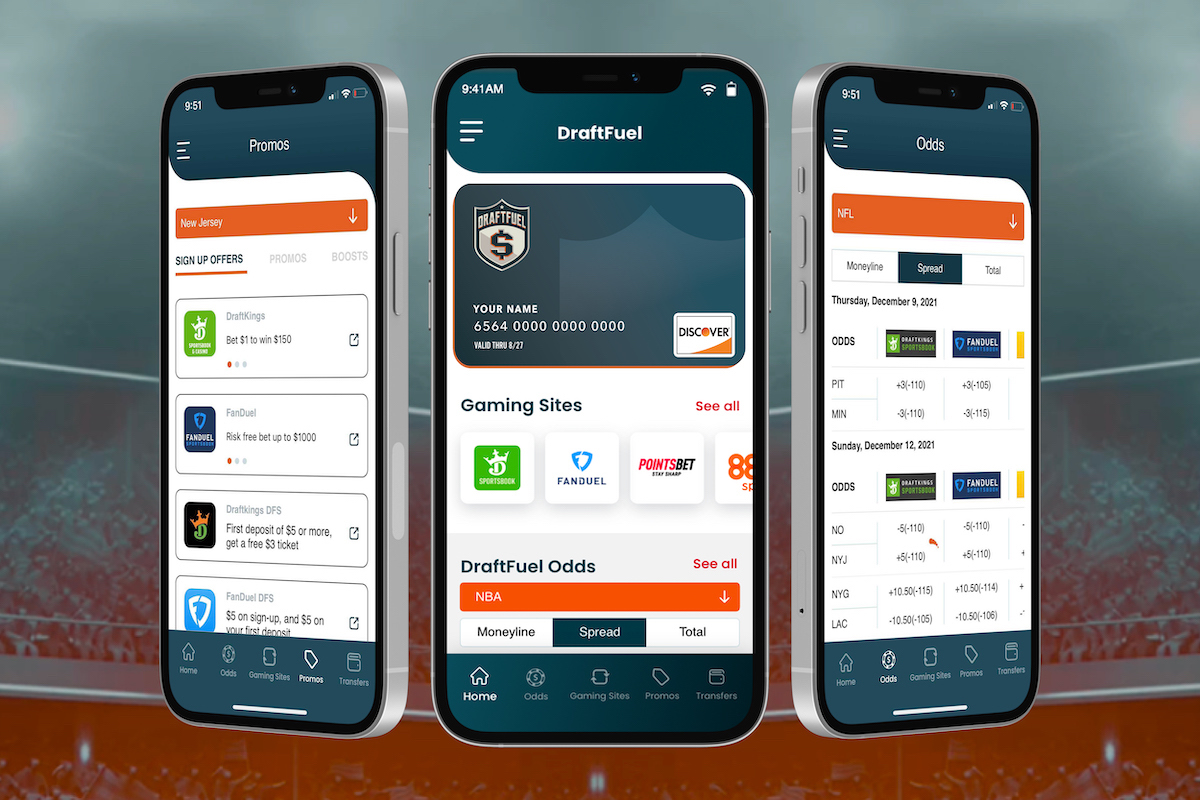The idea for forthcoming fintech app DraftFuel, founded by CEO Tom Mangan and Chief Product Officer Alex Cullingford was conceived like — we can only imagine — many other Philly-area startups: on a beach in Wildwood.
The pair had known each other for at least 15 years, meeting while working at a mortgage brokerage in 2004. Although they were only colleagues for a short time, the pair kept in touch as friends for more than a decade, and Cullingford was the first person Mangan called when he had the spark of an idea for the app.
It went down like this: In July 2019, Mangan was hanging out on the beach with friends in North Wildwood, talking to a buddy about how he wanted to place a wager on an upcoming UFC fight. His wife jokingly shut him down, talking about how they had better things to spend their money on. Mangan, who’d just been working with a software dev agency on an app similar to round-up savings app Acorn, said a switch flipped.
“I asked his wife, what if the money came from every time that I swiped my card — just the spare change gets accumulated?” Mangan said. “It didn’t even take her two seconds for her to change her perspective in how she looked at it. All the sudden, it’s discretionary money.”
That mindset change, that users could wager or play with “found” money, seemed appealing to all of them. Mangan, a serial entrepreneur who’s based in the Northeast, called Cullingford, who’s based in Cherry Hill and “knows more about sports than anyone else I know.” The pair officially got to work in early 2020, and the DraftFuel app is set to be released to the public in early January 2022.
The app allows you to connect your bank account, and rounds up each purchase you make to the nearest dollar amount. If you grab a coffee for $3.55, $0.45 cents will transfer to your DraftFuel account. When you hit $10, that money moves to a prepaid Discover card that can be used in the online sportsbook, casino and daily fantasy sports space — DraftKings, FanDuel. The app also allows users to set up a fixed percentage of their bank deposits to go toward their DraftFuel account.

“The psychological component of utilizing spare change and seeming like you’re playing with found money was a big draw,” Cullingford said. “I was never a bettor. I played some fantasy sports, but this industry is really just starting to pick up, and thought, if I was able to play with found money, I would.”
After many surveys of sports enthusiasts, and participation in the Falls Fintech accelerator by Central Payments, they began piloting the app with friends and family. They use Central Payments as their banking partner, and the transactions are encrypted like any other bank-to-bank digital transfers.
The founding pair, which works with a dev team and contracted marketing team, aims to have the app available on Jan. 10, 2022, launching first in Pennsylvania and New Jersey. They see themselves hiring for a full-time compliance role and an enterprise sales role next year, and have a goal of hitting 200,000 users by the end of next year.
Within the first few years of legalized sports betting, the duo have seen the market explode. Thirty-one states have launched markets for it, with two more introducing legislation. Tens of billions have been wagered in the US in 2021, and it’s likely to double next year. You can take fellow Philly-area fintech startup Sporttrade’s recent $36 million raise as another data point of the market’s prominence.
“More and more people are joining, especially young people, and more states are coming online,” Mangan said. “We want to help young people or people coming to the hobby develop healthy financial habits.”
Bonus: They can play along with their phones while, say, hanging on the beach.







